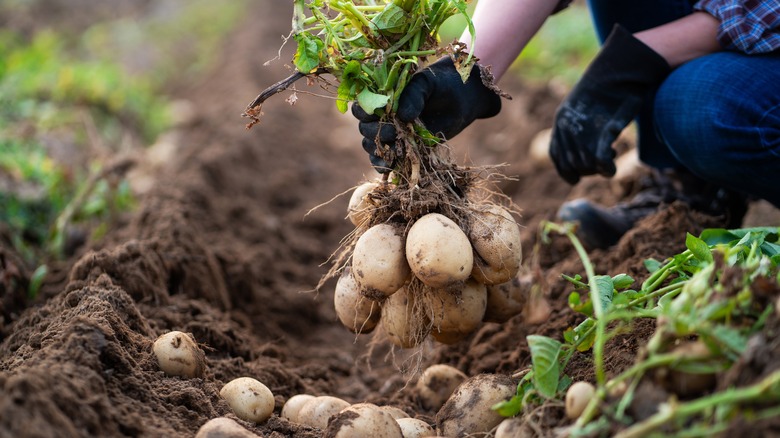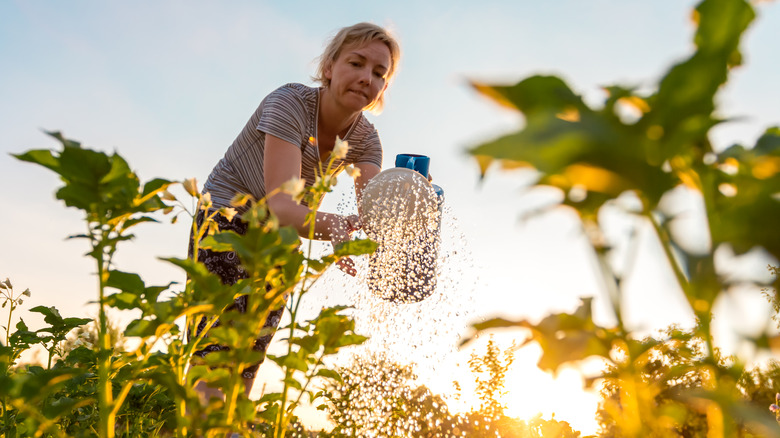Does Vinegar Help Or Harm Potatoes In Your Garden?
When it comes to using vinegar in the garden, you will likely find divided opinions, especially when dealing with sensitive crops like potatoes. While vinegar is often praised for its usefulness in organic weed control and pest management, it can be harmful if not used with care. Let's look at how vinegar can either help or harm your potato plants.
Vinegar is widely regarded as an effective natural herbicide due to its acetic acid content. Household vinegar, which typically contains around 5% acetic acid, can burn the foliage of unwanted weeds when applied directly. However, this method comes with risks, especially for crops like potatoes. Vinegar does not discriminate between weeds and your prized plants, making it a "non-selective herbicide." If vinegar contacts your potato leaves or stems, it can cause similar damage, resulting in brown, shriveled plants.
Therefore, if you decide to use vinegar as weed-control around your potato bed, it's essential to apply it carefully. Use targeted spraying techniques to avoid accidental contact with the potato plants themselves, and consider shielding them during application to prevent damage. The safest bet is to only use vinegar in areas far from your potato plants, or to opt for other forms of effective weed control for potatoes, like choosing an eco-friendly mulch option.
Vinegar's impact on soil and potato health
Vinegar's effect on soil can also be problematic. Potatoes grow best in slightly acidic soils, with an ideal pH between 5.5 and 6.0. While vinegar can lower soil pH, its effects are temporary and typically require large amounts to be impactful. Furthermore, if too much vinegar seeps into the soil, it could disturb beneficial microorganisms and harm the overall health of your potato bed.
Additionally, excessive use of vinegar near your potatoes can damage their root systems by altering the soil chemistry too drastically. Potatoes are shallow rooted, so they can be impacted even if the vinegar doesn't penetrate the soil too deeply. This could lead to stunted growth or even plant death. To avoid this, always dilute vinegar heavily if you plan to use it in your garden, and monitor your soil's pH to ensure it remains suitable for potatoes.
One reason why you should be using vinegar in the garden is that it helps control pests. For example, diluted vinegar solutions can deter garden nuisances like ants, aphids, and even slugs. Since pests can harm potato crops by eating the leaves or transmitting diseases, vinegar may serve as a natural alternative to chemical pesticides. However, even in this case, vinegar should be applied sparingly and away from the plants themselves, as it can still cause damage to potato foliage if sprayed too liberally.

